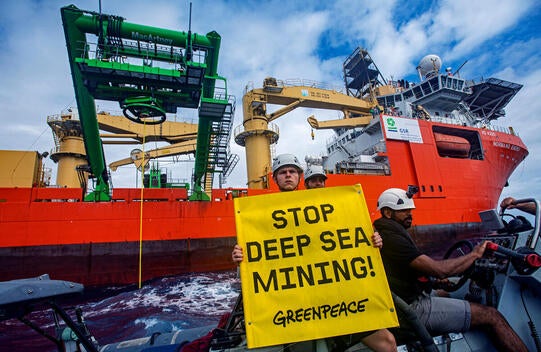‘Utterly reckless’: Why we need a ban on deep sea mining
Supporters say it’s crucial for the move towards renewable energy. Scientists, activists and even Google argue it should be banned until we can fully understand the impact it could have on the oceans, marine life and the rest of the world. Charlie Jaay dives into the deep sea mining debate

The deep sea includes all water below 200m, which is an area covering approximately 60 per cent of our planet. Although the most common ecosystem on Earth, it remains one of the least explored and understood. It is an environment of extremes but, thanks to recent technological advances, scientists have found the deep ocean not to be devoid of life, as once believed, but home to myriad life forms.
Even at depths of more than 5,000m, there are many endemic, unique and highly evolved species that are able to survive and flourish, with new species routinely being discovered. One of the deepest living animals is a sea cucumber found at a depth of over 10,000m, while a distant relative to the cod, a deep sea brotula, has been discovered 8,000m below the ocean surface.
Dr Diva Amon, a deep sea biologist, says: “The deep ocean is a vast reservoir of biodiversity. From glowing sharks and 11,000-year-old sponges to Dumbo octopus and blind white crabs that farm bacteria on their hairy chests. Deep sea species are not only weird and wonderful, they have challenged our very understanding of how life can thrive.
Subscribe to Independent Premium to bookmark this article
Want to bookmark your favourite articles and stories to read or reference later? Start your Independent Premium subscription today.
Join our commenting forum
Join thought-provoking conversations, follow other Independent readers and see their replies